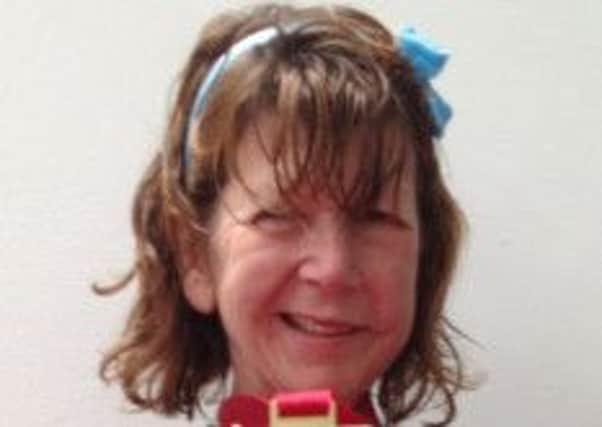An ordeal that doesn’t end when the disease has gone away


WHEN Alison, a mother-of-two, was told she was in remission from cancer, her friends and family were relieved. “Everyone around me was thrilled. But I just felt numb,” she says.
The 54 year-old had undergone months of treatment, including surgery and 30 gruelling rounds of radiotherapy, after being diagnosed with a rare and aggressive cancer of the salivary glands in April 2011.
Advertisement
Hide AdAdvertisement
Hide AdFollowing the treatment, her doctors were pleased with how it went, but Alison’s reaction to the news wasn’t one of relief. “I just couldn’t accept it,” she explains.
“I was very angry at having been let down by my body in the first place. I didn’t smoke, exercised regularly and did everything right, yet I’d still got cancer.
“Even though the doctors were telling me I’d now healed, I still felt angry and confused.”
Since then she has struggled to shake the fear she’d felt after her diagnosis.
Advertisement
Hide AdAdvertisement
Hide Ad“I still feel the fear and anxiety about every lump, bump and unusual sensation. It never really leaves you.”
Alison’s surgery left her with facial palsy too, meaning one side of her face droops, a constant reminder of the cancer.
She is, of course, grateful to be alive but coming to terms with the experience she’s been through, as well as the changes to her appearance, has been a huge struggle.
Joy Reymond, head of vocational rehabilitation services at Unum, an income protection specialist, says coping with an ordeal like this is difficult.
Advertisement
Hide AdAdvertisement
Hide Ad“There is definitely a lack of awareness of the ongoing emotional impact of cancer. When medical treatment is finished and the obvious symptoms subside, many people assume that things will simply return to normal.
“But it takes time to make the adjustments to the psychological changes, as well as to adapt to the longer term and sometimes more subtle consequences; fatigue, memory loss, lack of confidence and fear of recurrence.”
Unum is working with the Maggie’s Cancer Caring Centres on a campaign supporting people affected by cancer back into work. The charity offers help to anyone affected by cancer and is planning to build a new centre in Leeds – its first in Yorkshire.
Reymond says it is important to recognise the longer-term consequences of serious illness, that can go unnoticed by work colleagues.
Advertisement
Hide AdAdvertisement
Hide Ad“Often cancer patients look well, and are therefore expected to fulfil the same role as before, but don’t feel well.
“At work this can lead to misunderstandings and difficulties in making the necessary adjustments, such as taking on a less demanding job or fewer hours.”
But she says employees are often reluctant to ask for more support for fear that it could put them at risk of losing their job.
“Cancer is a life-changing illness that can cause deeper psychological issues. Yet there is a lack of knowledge among both people with cancer and employers as to what physical and emotional changes to expect during and after treatment.”
Advertisement
Hide AdAdvertisement
Hide AdEmma, 40, was stunned by how hard the emotional catch-up hit her following her treatment for ovarian cancer. Although the surgery and chemotherapy had been gruelling to endure, it was after treatment had ended that she hit rock bottom.
“You think you’re going to be elated, and everybody around you thinks you’re going to be elated, but you’re not.”
Now, almost two years on from her diagnosis, Emma believes that much of the psychological struggle she experienced was rooted in the profound change that often follows a life-changing trauma.
She acknowledges that she was going through a grieving process. “It’s the grieving of an identity that one might have held on to, and for a future that’s no longer to be,” she explains.
Advertisement
Hide AdAdvertisement
Hide AdHowever, she says the support she received from Maggie’s made a huge difference. The centres offer a range of services, including yoga and nutrition advice, as well as counselling, which Emma found extremely helpful as it allowed her to talk about what she’d been through and how she felt.
She admits there were times when she sometimes found it hard opening up to friends.
“I felt as if I couldn’t keep saying, ‘I’m still feeling rubbish’, ‘Yes, I’m still in the same place’,” she says, acknowledging she felt unable to admit she hadn’t just “got over it”.
But when it comes to dealing with serious illness, coping with the emotional fallout is just as important as handling the physical impact.